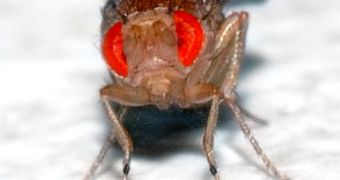A team of University of North Carolina School of Medicine scientists made a very important step in understanding the underlying molecular signals that influence a wide range of biological processes – from the sleep-wake cycle to cancer growth and development.
This field of study is called chronobiology, and scientists working on the matter have identified the genes that control circadian rhythms in people, mice, fruit flies, fungi and several other organisms, but they have never fully understood the mechanisms by which these genes interact with the light surrounding the organism.
Circadian rhythms are the physical, mental and behavioral changes that occur in living organisms, according to the earth's 24 hour cycle.
These changes are mainly influenced by the amount of light from that organism's environment.
Fifteen years ago, Aziz Sancar, MD, PhD, the Sarah Graham Kenan Professor of Biochemistry and Biophysics in the UNC, and his colleagues, found a human protein called cryptochrome that behaved like a core component of the molecular clock in mammals, fruit flies and other insects, and in plants too.
Sancar, who is now also a member of UNC Lineberger Comprehensive Cancer Center, said that “cryptochrome 'resets' the circadian clock, but we were not sure how it worked.”
To try and solve this mystery, the team used fruit flies (Drosophila melanogaster) to purify the cryptochrome and developed a biochemical test that shows when and how the protein transmits signals.
“We can now detect the protein at work,” explained Sancar.
“When we expose cryptochrome to blue light in fruit flies, a millisecond of light exposure has a half-life during which we can examine the mechanism in the laboratory.
“We can follow the molecular signals after light exposure and have a reliable model to test various hypotheses about how light interacts with the circadian systems we know are so important to biological processes.”
This research could prove very valuable to scientists who study the circadian clock's relationship to sleep disorders, jet lag, cancer, bipolar disorder, depression and other diseases.
The study was supported by the US National Institutes of Health, and was published this week in the Proceedings of the National Academy of Sciences.

 14 DAY TRIAL //
14 DAY TRIAL //